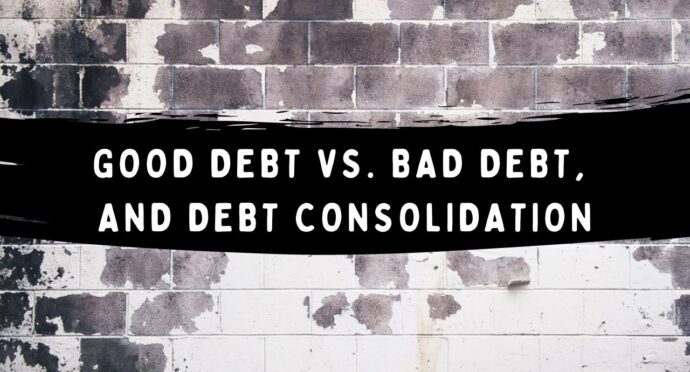Article by Patrick Lynch, Head of Operations
The largest expense for most people is their mortgage. But this isn’t the only debt that is (easily) available – you might have a credit card (or cards), a personal loan for your car, HECS/ HELP, etc. Debt is not a dirty word. As the latest budget has shown, debt is commonly used by Governments to sustain or grow the economy. Companies use debt to achieve business growth.
Yes, debt can be dangerous if you borrow beyond your ability to repay, but sensibly applying leverage to appreciating or less risky assets (property, shares, etc.) can be beneficial for wealth creation. The question is – what is good and what is bad debt?
Good vs. Bad debt
‘Good’ debt is often defined as money borrowed to achieve wealth or income creation, e.g. taking out a home or investment loan to acquire a property or shares with the expectation of value growth. Student loans (HECS) can also fall under this category – good education is often a strong determinant of future earning potential.
‘Bad’ debt is the opposite – borrowing for non-specific reasons, e.g. a credit card or personal loan to buy a new car. These aren’t bad in and of themselves: a credit card, used well, can be a good money management tool (e.g. maximising offset balances, spending rewards, etc.). But they may not directly create wealth.
Dan and I have previously spoken about how credit cards can kill borrowing capacity. So, what should you do if you have too much bad debt?
Debt consolidation
The most common approach is to consolidate, reducing the number and/ or amount of repayments, especially on the most expensive debts. For example:
- Do you have too many credit cards, store cards, personal loans, etc.?
- Are you struggling to keep track of what repayments are due and when?
- Do your ‘bad’ debts have high interest rates, unnecessary fees, etc.?
- Are you only servicing debt, i.e. making minimum payments without reducing balances?
Debt consolidation might involve taking out a new mortgage or additional loan against your home. If you don’t own property, a personal loan can be used. Ultimately, you are looking to address one or a combination of the above and achieve:
- Simplification – one repayment is easier to manage and more convenient than several.
- Savings – a lower rate to reduce interest expenses, fees for multiple facilities, etc.
- Improved cash flow.
- Improved borrowing capacity.
If you are thinking about debt consolidation, there are some things to consider:
- Repaying debt over a longer term (e.g. 30 years) can result in higher interest costs. If you are combining a car loan with your mortgage, a loan split over a similar term to the time remaining will still be beneficial if the interest rate is lower and debt structured correctly.
- Make sure old debts are not only cleared, but closed. There is no sense in consolidating credit card balances into your home loan, but keeping the cards and getting into more debt.
- Think about using any cash flow savings to make additional repayments and pay off the refinanced debt quicker, or placing the savings into a stand-alone account as a way of building a safety net or nest egg for future investment opportunities.
- If you do consolidate debts onto your mortgage, you are using equity in your property. Be aware of how a higher loan to value ratio might affect your home loan interest rate or the net sales proceeds were you to sell.
Closing
Remember, debt consolidation doesn’t reduce your debts—it might make your repayments more manageable and should be combined with improved spending behaviour.
If you’d like to know more, please feel free to contact us.
——-
Long Property blog content provides general information only and has been prepared without taking into account your objectives, financial situation or needs. We recommend that you consider whether it is appropriate for your circumstances and your full financial situation will need to be reviewed prior to acceptance of any offer or product. Nothing on the Long Property website constitutes legal, tax or financial advice and you should always seek professional advice in relation to your individual circumstances.




